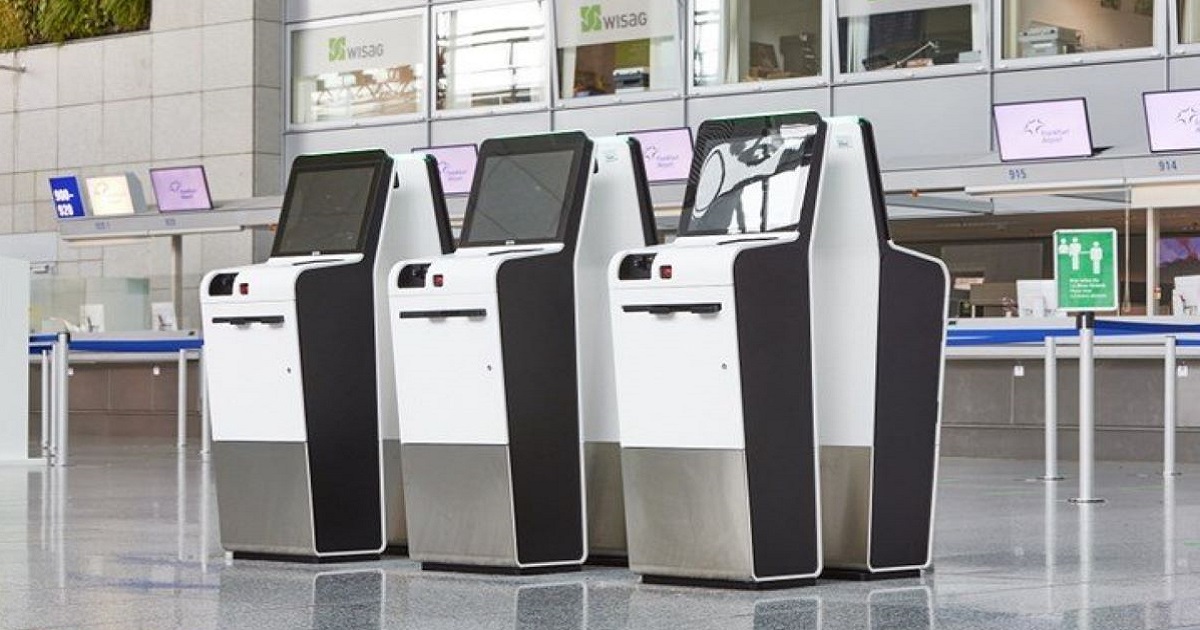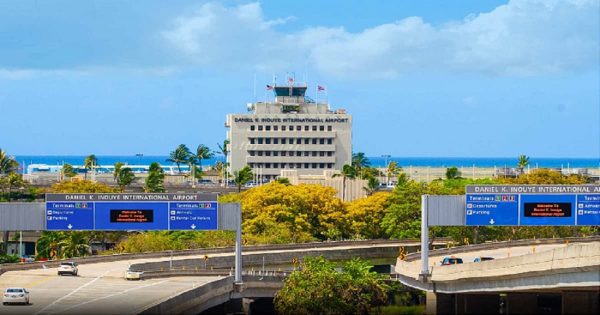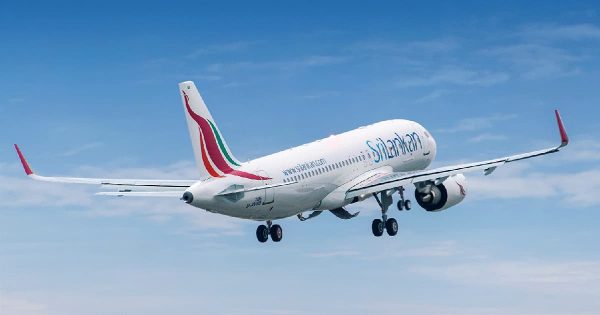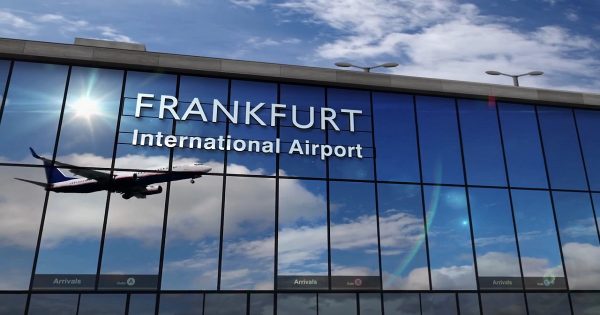Frankfurt Airport is deploying 87 new check-in kiosks across Terminals 1 and 2 to improve the passenger experience.
The self-service kiosks will enable passengers to check-in and print bagtags. Passengers then take the tagged bags to a bagdrop – staffed or self-service.
They are biometric-enabled. That means once passengers enrol in a biometric service they do not need to show a passport or boarding pass or touch a device again in the airport.
Availability of the touchless route depends on airlines, airport and authorities working together to implement such systems.
Reducing physical touchpoints is an understandably growing trend at airports.
The 87 kiosks are common use (CUSS) so can be used by passengers of multiple airlines.
The modular design also means enhancements and modifications can be made without replacing the entire kiosk, bringing cost savings and sustainability benefits.
Supplier
The kiosks come from SITA, a long time partner with Frankfurt Airport. The model number is TS6 and installation of the 87 kiosks is expected to be completed later in 2021.
The deployment at Frankfurt Airport will be SITA’s largest implementation in Europe.
In July, SITA announced it had introduced self check-in and self bag drop with Ethiopian Airlines at Bole International Airport (ADD).
The company also announced it had implemented its new-generation of passenger processing infrastructure at Václav Havel Airport Prague. That included 35 SITA TS6 self check-in kiosks.
Dr. Pierre-Dominique Prümm, Executive Director Aviation & Infrastructure at Fraport:
“Offering passengers innovative, safer, and smarter ways to travel while also ensuring we have resilient and efficient airport operations is vital as our industry recovers from the impact of the pandemic. SITA supports us in achieving this ambition, and we look forward to welcoming more passengers back to the skies.”
Sergio Colella, President, Europe, SITA:
“We’re proud to continue supporting leading airports such as Frankfurt in their recovery from the impact of the pandemic. Technology holds the keys to unlocking smarter and safer travel for all, recouping revenues lost during the past 18 months, and ensuring flexible operations that can adapt to the unforeseen circumstances of tomorrow. A more robust and sustainable air transport industry will benefit passengers, economies, and jobs.”
N.B. Image credit: SITA







